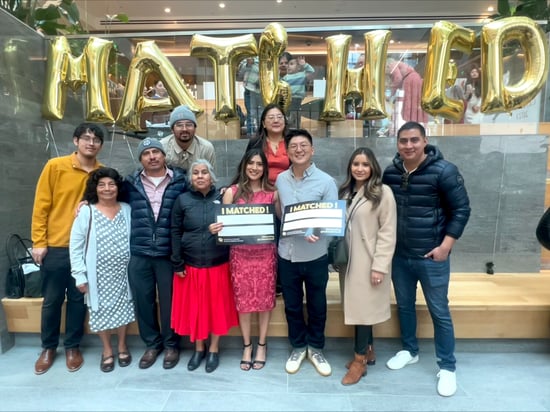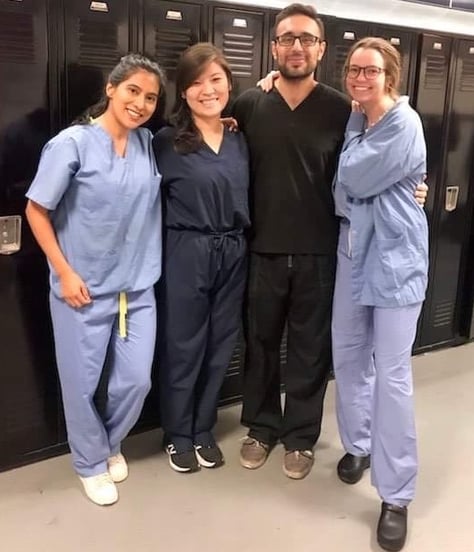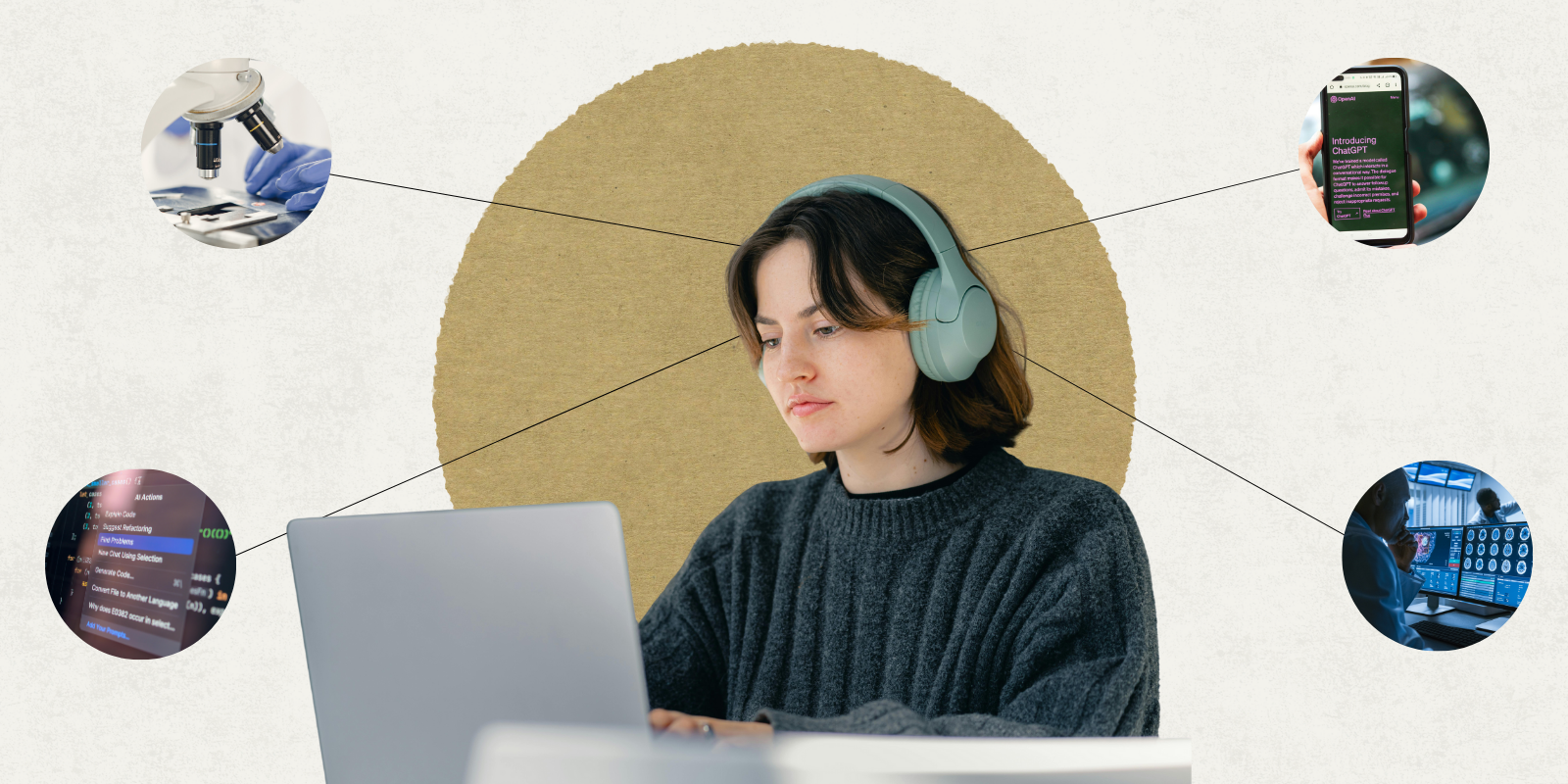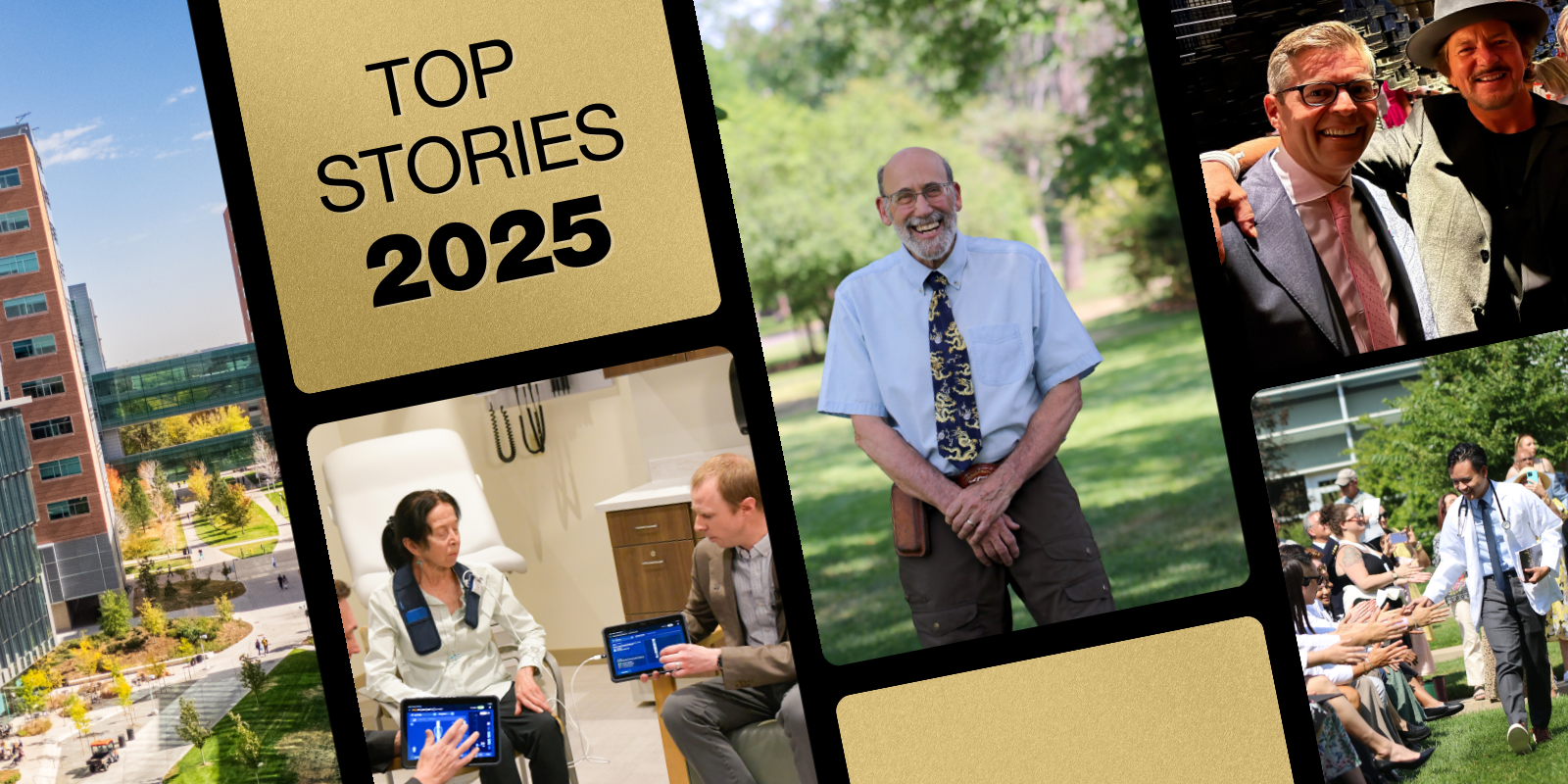For Bianca Sanchez, the ideas of medicine and family are inextricably intertwined.
As the fourth-year medical student at the University of Colorado School of Medicine looks toward her graduation ceremony later this month, she recalls that it was her family’s struggles that inspired her to pursue medicine in the first place — and it’s her desire to help other families like hers that led her to a pediatrics residency at the CU School of Medicine. That residency will begin this summer.
“My interest in medicine comes from seeing my family's experiences with the health care system,” Sanchez says. “Both of my parents are immigrants from Mexico, and when they came to the U.S., their focus was on working hard and providing for my brother and me. Language was a big barrier in terms of getting quality care and access to care. They had a really hard time navigating the health care system, and because of this they would often wait to get care until it was an emergency. Seeing that bigger picture and learning how to provide holistic care is what drove me toward medicine.”
Taking the first steps and addressing barriers to care
When she was a sophomore in high school, that drive led Sanchez — who grew up in Aurora, just miles from the CU Anschutz Medical Campus — to sign up for Mini Med, a CU School of Medicine-sponsored course on the human body. She later graduated from CU Denver with a degree in biochemistry and a minor in health humanities. Applying to the CU School of Medicine was the next step in her journey to help communities that experience barriers to care.

Sanchez on Match Day with her family and her partner, fellow CU medical student JP Tsai.
“If a patient can’t afford a medication, that's really going to matter. Transportation issues really matter,” she says. “With my parents, specifically, I would do a lot of the translating or interpreting when we would go to appointments. Seeing how it affected the quality of care that my parents received, and how it would keep them from going again — that's what led me to pursue medicine at first.
“As a medical student and an intern, being able to speak to patients in Spanish has been such a rewarding feeling,” she adds. “To be able to speak to them in their first language and see how much more comfortable they feel about bringing up things that they would have not otherwise has really been a gift. It inspires me to be able to do that moving forward.”
Inclusive research
Sanchez also brought her Spanish-language fluency to her research, getting certified in the language so she could include native Spanish speakers in her study on postpartum depression.
“My goal is to improve the postpartum depression screening process and see how mothers perceive the questionnaire that they fill out, seeing if there's any barriers to being honest, anything that we can do to make it better,” she says. “That was a project I was passionate about, because it connects with pediatrics. If the mother is healthy, then then their baby is going to grow up in a healthy environment and do well.”
It’s all part of that family theme that drew her to medicine in the first place, she says. Working in pediatrics will allows her to make a difference early on and set children and families up for future success.
“Kids and teens are really resilient, and it’s important to make sure that that we’re providing high-quality care by also taking their mental and emotional needs into consideration,” she says. “It's also really meaningful to be able to work with parents, as a team, to provide care to patients.”
The med school journey

Sanchez with her anatomy group. It was the first course she took in medical school.
Medical school was full of ups and downs for Sanchez — the schoolwork was challenging, the hours were long, and having the COVID-19 pandemic hit midway through her first year was isolating, to say the least. But she also found valuable mentors, met her boyfriend, and served as a co-leader at the Healthy Beginnings Clinic, a student-led free pediatric clinic at Warren Village, a nonprofit that serves unhoused and unstably housed low-income single-parent families in Denver.
“It was rewarding to be able to help people who need it,” she says. “It was a good reminder of why I'm going into medicine and why I chose this field.”
Most importantly, her medical school career allowed her “to build an identity in the medical field,” she says. “I took the MCAT twice before I got in, and I really saw myself grow throughout the process. And even though we don't really see a lot of Latino representation in the health care field, building that confidence in myself is something I feel really proud about.”
Future plans
Sanchez’s parents and brother, and especially her grandmother — who got her visa 18 months ago to watch her granddaughter graduate from medical school — are proud as well, and excited to see what Bianca does next.
“I know I want to serve an underserved community,” she says. “I’ve always thought about working in a setting where I can have a balance — work at an academic hospital, but also provide services in a county hospital. Doing my third-year rotation at Denver Health really made me aware of the scarcity of resources and services found in county hospitals. After residency, I see myself doing a fellowship in GI or liver. I'm really interested in this body system, given the wide range of diagnosis and opportunity to have continuity of care with patients and families. From there, I see myself having my own family and balancing career and family life.”



